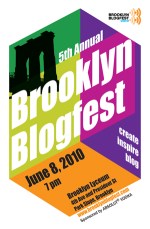
They say that the truth is stranger than fiction. This is true, but meaningless. The truth may be strange, indeed, but good fiction is compelling. That’s what makes fiction more real (or more true) than the truth. Fiction speaks to you in ways that the truth never will. The real question is not whether something is truth or fiction, but rather how good it is, either way.
Note for the concerned, erudite, elite, and critical: Not all fiction is truer than truth. Only the best fiction is, but we’re not talking about bad fiction here. Danielle Steele fits here as good fiction. And Nora Roberts. There are good reasons to read DS and NR and James Joyce and Thomas Pynchon. Good fiction is better than truth at helping us understand what is and isn’t true in the world. [See my quote from Kafka in the quotes section of the blog.]
This is why poetry and fiction are utterly essential to life as we know it. The arts make life possible, because only through the arts do we understand how we live together, relate to each other, learn from each other, and build the wherewithal to fall and love (or lust) and propagate the species. This is because the arts are all about that one central feature of humanity that allows us to be who we are: narrative. Not mere communication, the narrative is a story, meta-communication with backstory, protagonists, antagonists, beginnings, middles, ends. Narrative is the essence of being human.
So what happens when we use narrative to relate something that really happened? We all know the old telephone game, and social science verifies in no uncertain terms how deeply flawed narrative is as a way to communicate what really happened, how it happened (which unfortunately stands in for “truth” with lots of people). Eyewitness testimony, it turns out, is an awful way to find the truth and bring people to justice. People remember what they want to remember and tell you the story that’s important to them. As a teacher and trainer of interviewers and researchers I am adamant: The worst way to find out about something is to ask about it directly. That’s because everything we say (including this very post) is really about doing some specific emotional work for the speaker.
This is a key concept: emotional work. Our stories have a two-fold nature. They convey information, but because we’re usually invested in that information in important personal ways, we tell our stories in ways that satisfy important personal needs. This creates a paradox of truth and fiction, however, because it makes some truths utterly false and irrelevant, and much fiction important, compelling, and utterly true.

The paradox of truth and fiction is revealed in James Frey’s story with Oprah – how he “embellished” his memoir, A Million Little Pieces, to the point at which is was less memoir than perhaps creative non-fiction or even a novel “based on a true story.” It’s worth noting that Frey did try to offer the work as a novel when he started out.
I never read A Million Little Pieces. I read My Friend Leonard, the sequel. I was deeply moved by Frey’s writing and admit I was choked up at the end of Leonard. Frey’s writing style was gripping and compelling and the story he told was true in ways that deeply connected with so many readers. Frey’s work holds up, no matter how embellished it is.
When the truth becomes shrill, does it really matter?
When fiction speaks the truth, it surely does.




I couldn’t agree more. Truth in fiction is a pure, almost organic thing. It is as if it transcends the reality(sometimes not so truthful) from whence it sprouted and becomes something better.
I am so glad you stopped by my blog. Now I can get to read your wonderful writing!
Many thanks Selma… I shall try to live up to wonderful expectations! Be well.
John…I shouldn’t comment as I dislike him personally. But his last name is ‘Frey’…I couldn’t help it, the former copy-editor in me….good posts…am glad you’re back again.
Cheers.
hey susan, thanks for noticing that mis-spelling and pointing it out. will make the change. it’s good to be back; feedback appreciated.
Pingback: The truth and words | truth and rocket science